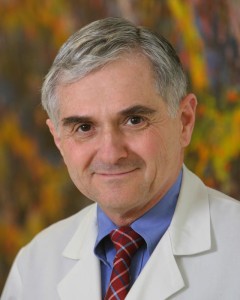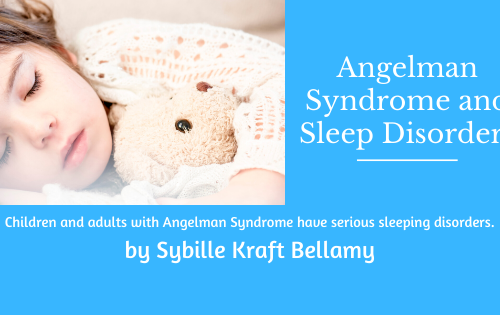Angelman Research – Baylor College of Medicine Research Discovers Potential Therapeutic for Angelman Syndrome
 Baylor College of Medicine Research Discovers Potential Therapeutic for Angelman Syndrome
Baylor College of Medicine Research Discovers Potential Therapeutic for Angelman Syndrome
ASF-funded research, published in Nature, proves paternal Ube3a can be activated and AS symptoms can be recovered.
Dr. Art Beaudet
Promising Angelman syndrome research continues to move closer toward potential clinical trials, as announced in December in a paper in Nature by Dr. Art Beaudet and his research team at Baylor College of Medicine (BCM).
More research will be conducted but pre-clinical trials in AS mice have proven that the paternal copy of Ube3a can be activated and that AS symptoms can be recovered, though more testing is needed to determine exactly how the cognitive deficits associated with AS are recovered.
The Angelman Syndrome Foundation funded this research in its 2011 and 2013 research grant cycles, as part of its $8 million and growing investment in AS research with the ultimate goal of finding a cure for AS. The BCM Intellectual and Developmental Disability Research Core grant and the National Institutes of Health were also major funders of this research.
Dan Harvey, ASF Scientific Advisory Committee Chair, has provided the following summary about the research.
Background
Neurotypical individuals have two versions of the AS gene (UBE3A), one from their mother (the maternal copy) and one from their father (the paternal copy) but only the one from the
mother is expressed or “active.” In AS, the maternal copy is missing (deleted) or altered in some way to render it inactive. In 2008, Goal #1 of the ASF Research Roadmap was to aggressively explore activation of the silenced or “inactive” paternal copy of the AS gene (UBE3A) as a potential treatment for AS. The studies described in this article for Nature are the culmination of those efforts.
Awakening the gene
Recent studies by Dr. Ben Philpot and colleagues at the University of North Carolina-Chapel Hill demonstrated that Topotecan, a natural product derivative with various uses, unsilences the paternal copy of the AS gene in a non-specific manner. In this new article for Nature by Dr. Beaudet, Dr. Meng and their colleagues, it is demonstrated that a small DNA analog, known as an antisense oligonucleotide or ASO, can interact with the paternal copy of the AS gene and unsilence it in a highly specific manner.
Initial studies done with isolated neurons demonstrated that treatment with an ASO causes a long-lasting unsilencing of the paternal copy of the Ube3a gene.
Treatment and recovery
Subsequent studies were done with AS mice. The ASO was directly injected into the brain of an AS mouse via a technique known as ICV (intracerebroventricular) injection. The ASO was well tolerated and partially unsilenced the paternal copy of the Ube3a gene. Additionally, it was highly specific for the AS gene, with no impact on other genes. Its activity was long lasting with unsilencing still observed sixteen weeks after treatment. When injected directly into a specific region of the brain known as the hippocampus, the part of the brain that manages cognition and learning, complete unsilencing of the paternal Ube3a was observed in the vicinity of the injection site.
Four weeks after treatment, AS mice treated with an ASO were subjected to behavioral testing and several of the behaviors typically observed in AS mice were reversed. In particular, memory impairment observed with AS mice was reversed after treatment. More extensive reversal of AS characteristics may require treatment at a younger age, a longer recovery time after treatment to allow greater rewiring of neural circuits, or a higher dosage of ASO.
Conclusion and next steps
In conclusion, the paper states: “Well tolerated delivery, broad tissue distribution, and long duration of action sets a framework for ASOs as a viable therapeutic strategy for diseases of the CNS (central nervous system), and builds enthusiasm toward further optimization and development of an ASO treatment for AS.” The next step is to conduct more testing to determine exactly how the cognitive deficits associated with AS are recovered.
Access the complete article
The full Nature paper can be accessed by clicking here. For questions about this research, please contact the ASF at http://www.angelman.org/about/contact/.
A Family’s Perspective
Provided by Debra F. Sukin, mother of Jacob Sukin, who is 13 years old
Jacob is deletion positive for Angelman syndrome and was first diagnosed at Texas Children’s Hospital with genetic testing in Dr. Beaudet’s lab back in 2001. Jacob’s diagnosis was devastating to our family as we learned about Angelman syndrome’s physical and mental challenges and limitations.
While seeking the best care and treatment for Jacob to maximize his potential each year, our family set out to learn what research was available, educate others on the need for research for this rare genetic syndrome, and raise funds for research.
We are thrilled with the recent research findings by Dr. Beaudet and the genetics lab at BCM at the Jan and Dan Duncan Texas Children’s NRI that was published in Nature magazine. The ability to promote the silent paternal gene in the AS mouse model and witness normalization of behavioral and learning characteristics as well as elimination of seizures and ataxia provides hope.
Jacob has a long life expectancy. Any therapeutic intervention that will improve his ability to live in this world or create a cure is exactly why we believe in research. We are so grateful to the Angelman Syndrome Foundation who funded this research along with Baylor and TCH.


